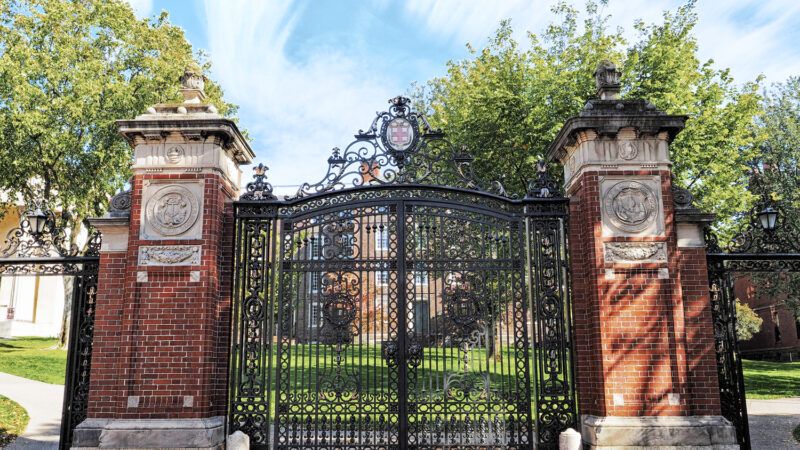Brown University Will Let Students Anonymously Report Title IX Sexual Misconduct
What could go wrong?

Brown University has debuted a new system for reporting sexual harassment and misconduct under the auspices of Title IX, the federal law that prohibits sex- and gender-based discrimination in education. Notably, it allows students to make an anonymous accusation against another member of campus.
"Brown University encourages community members to report any acts they believe to be an incident of sexual harassment, sexual violence, or gender-based discrimination," notes Brown on its website. "The Sexual Violence & Gender-Harassment Incident Reporting Form was developed to capture these reports as a part of the intake process."
The website stresses that using the anonymous reporting form is not the same thing as filing a formal Title IX complaint, which would automatically trigger an investigation. These investigations attracted significant criticism from civil liberties advocates for abridging the due process rights of accused students, though the process was overhauled by the Trump administration to restore basic fairness.
But an anonymous reporting system is a concern even if it does not always result in an investigation. Many campuses have anonymous tiplines for reporting "bias incidents," which in practice often amount to instances of people being unreasonably offended. Giving students methods for reporting one another for utterances that are actually protected by the First Amendment is a poor use of university resources, and it encourages hypersensitivity and snitching. On some campuses, the police have even become involved.
Brown's new reporting system is similar to these bias tiplines, except it's specifically for sexual misconduct. Despite federal guidance stating that Title IX administrators should focus on serious sexual misconduct, many campus bureaucracies continue to take an expansive view of what counts as a Title IX violation. As with anonymous bias response systems, the anonymous Title IX reporting portal will likely draw complaints about conduct that is not actually illegal.
One student activist described the new system as "liberating," precisely because it will allow anonymous reporting. "Any steps we can take to reduce barriers to reporting and to center marginalized populations can help us be more comprehensive and effective in dealing with interpersonal violence," wrote two advocates at Brown's Sexual Harassment and Assault Resources and Education office.
Universities can and should deal with interpersonal violence. But for accountability's sake, campus authorities really do need to know the identities of accusers. Otherwise, the system is likely to be abused.


Show Comments (68)